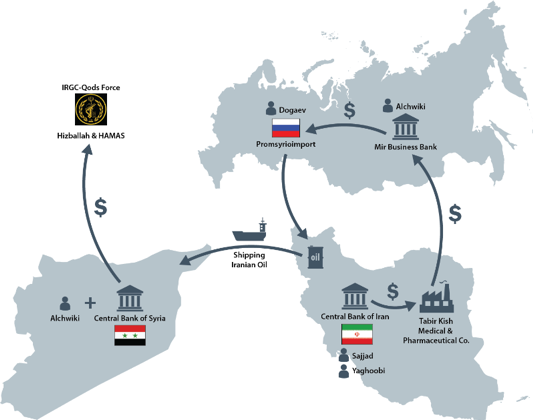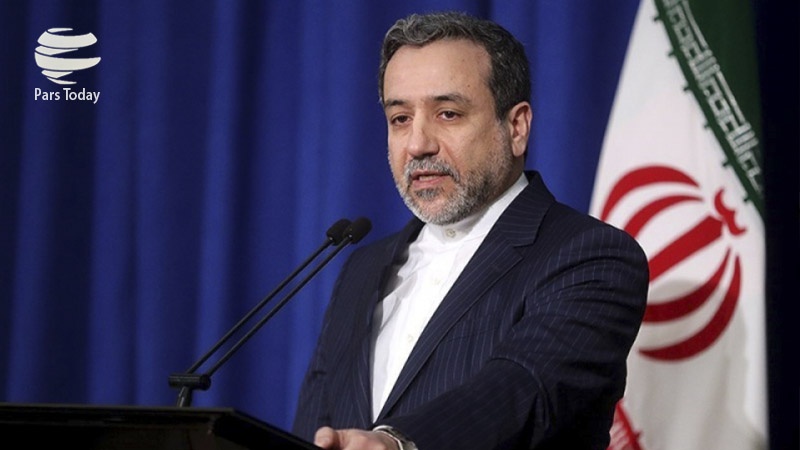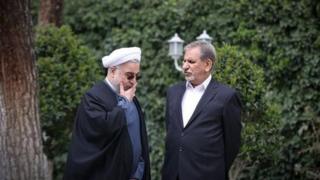![]()
Problem of Social Freedoms
The editorial of Arman daily focuses on futility of Iranian establishment policies in restricting social freedoms and people’s access to social networks such as Telegram and Instagram.
The editorial asserts that creating restriction is not a logical way to impact the society, just as we have repeatedly seen the failure and fallouts of such policies. Recently there has been talk of blocking Instagram in Iran. Iranian establishment should think of the results of its actions to see if confrontations with social networks in recent years have had any positive impacts.
The editorial goes on to say: by taking a look at the beginning of modernity in Iran, we can see that similar stances were taken regarding the creation of new schools and elimination of old ones. Even there were weird confrontations with closing of public baths and using showers and clean water. Now the question is if such confrontations were useful. The policies which are after creating restrictions are not fruitful.
The editorial emphasizes: under the current conditions, it is necessary to pay attention to the cyberspace and the social networks. The Internet plays an important role in employment; a lot of information and news are conveyed through these networks; accessing the news through the Internet has significantly increased compared to using media such as state-run IRIB.
The editorial continues: when Telegram Channels were blocked in Iran, people turned to accessing these channels by using VPN. Now the question is: is it to the advantage of the society to clandestinely access these messengers or is it better to monitor the society transparently and based on cultural programs?
The editorial concludes: when the preventive measures do not pay attention to people’s demands, it shows discrimination, and they will not be able to resolve the issues.
New Management in Azad University
The editorial of Arman daily focuses on the new management in Azad University under Ali Akbar Velayati which has resulted in ousting reformist and moderate professors, deans and managers from this university.
According to the editorial, it seems that there are two images of Azad University in Iran: first one is the university Mokhber Dezfuli, secretary to Supreme Council of Cultural Revolution, talks about, in which nothing has happened after death of Hashemi Rafsanjani; professors, deans and managers have not been fired; the new managers do not have any factional and partisan views towards managing the university. The second one is the Azad University that actually exists; everybody can see it; and it is criticized by many people.
The editorial continues: most certainly, Mokhber Dezfuli cannot say that he is not aware of the massive changes that have taken place in Azad University under the supervision of Ali Akbar Velayati, the new head of the board of trustees in this university. Many of the old professors have been ousted; many of its managers have been removed from their positions. What is surprising is that how even Hashemi Rafsanjani’s daughters who were members of scientific board of Azad University were fired from this university.
The editorial adds: under Velayati, Azad University has ousted many professors and managers, thus the university is handed over to the principlists and there is no place in it for even moderate principlists.
The editorial concludes: it must be mentioned that about 1.5 million students are in line to leave the country. Certainly, if Supreme Council of Cultural Revolution, higher education, Azad University, etc. had paid attention to science and research instead of political games, these people wouldn’t stand in line to leave the country.
Brain Drain, Iran’s Collective Disease
The editorial of Arman daily focuses on the issue of widespread immigration of educated people and students from Iran, investigating its causes and consequences.
According to recent researches, more than 67% of Iranian students are willing to go abroad to continue their studies, while only 20% of them say that they are ready to get back to their homeland. Many top students and prominent university graduates either go abroad or are waiting to obtain admission and immigration.
The editorial continues: in past 3000 years, Iran has never faced such a massive immigration and displacement of its citizens. The fact that these immigrations include high-quality human resources and elites makes it more catastrophic to the country, because lack of high-quality human resources and elites will result in drop in the quality of collective life and national identity.
The editorial adds: the political systems with weak governance philosophy and ideology prefer that the critical and influential part of the society leave the country, as they are rivals of the ruling non-elite groups. We should not forget that Iranians have been the most displaced nation in the world. No other country in the world can compete with Iran in terms of the number and quality of immigrants.
The editorial concludes that Iran is suffering from a ‘collective disease’ which is after making its brain smaller and emptier. Meanwhile, the disease is not investigated or controlled by the government and people tend to intensify it.
Arman daily – November 20
Iran Overrides Sanctions with Help from Russia, Syria
On November 4, the US Treasury implemented new sanctions on Iran which will halt its oil shipments including to Syria. On November 20, the Treasury said Iran had managed to build complex networks for crude oil shipments to Syrian and Russian companies. In return, Iran could require the funds from the shipments to go to the Palestinian Hamas and Lebanese Hezbollah, designated terrorist organizations. Iran has been able to export millions of oil barrels by using vessels that can turn their tracking systems off to evade detection. The Global Vision Group located in Russia and owned by Syrian national Mohammed Alchwiki has facilitated the shipments by working with Promsyryoimport, a subsidiary company of the Russian Ministry of Energy. According to the Treasury Department, Iran’s Central Bank has used a local pharmaceutical company as cover to work with companies in Russia in order to transfer funds to Syria.
The latest round of US sanctions will freeze the assets of individuals involved in this operation, including the central bank’s international development director Rasul Sajjid, and vice-governor for international affairs Hossein Yaghoobi. According to the US Treasury, the deputy director of Promsyrioimport, Andrey Dogaev, has worked closely with Yaghoobi to coordinate the sale of Iranian oil to the Syrian government. Iran will be pressured to cease funding for terrorist militias in the region through this complex operation. In addition, the US will likely expose and isolate the individuals and companies that help Iran override the sanctions regime. This will send Iran a clear message that the US is able to track Iran’s oil exports, through different means including satellites.
Iran says Progress in Trade with EU Slow, Offers Little Hope for Change
Iran wants Europe to act faster and commit to new mechanisms that would allow the flow of mutual trade, commercial and financial activities, after the US left the Iran nuclear deal and renewed sanctions against the country. Iran’s deputy foreign minister for political affairs, Abbas Araghchi, said that Europe has failed to meet requirements for trade that would encourage keeping the nuclear deal after the US withdrawal from it in May 2018. He added that EU countries could not or would not find a workable mechanism to satisfy Iran’s interests in the nuclear agreement. Kamal Kharrazi, head of Iran’s Strategic Foreign Relations Council, bluntly criticized the European countries for not staying committed to the deal. According to Kharrazi, “Iran is not be questioned over the deal, whereas others should be, because Iran has remained committed to the agreement”. Araghchi insists that Iran’s interest is served by upholding the nuclear agreement. Iranian commitment to the deal is more likely to attract trade and ease political pressures. Other parties to the deal, i.e. Russia, China, France and the UK, have stayed in it hoping to pressure the US to comply by its provisions, including trade with Iran in return for a halt to its suspicious nuclear activities.
This week the British Foreign Minister Jeremy Hunt visited Tehran to discuss important bilateral, regional and international issues, on the heels of controversies surrounding the British government over its Brexit plans. However, it is unlikely that the UK can find an easy way to work with Iran on these issues. Iran has said that it will not release the dual Iranian-British nationals currently held in prison. It also demands that the UK halt opposition television channels based in London from covering the plight of the Arab minority Ahvazis, some of whom are persecuted for calling for independence from Iran. Ali Shamkhani, Secretary to the Supreme National Security Council of Iran, told Hunt that Iran expected the British government to take a stance on the issue, and suggested that the violence perpetrated by some of these minority groups should be declared an act of terrorism.
Iran’s Worsening Economic Problems Lead to More Strikes
https://www.youtube.com/watch?v=Dr3F0P4B8Ic
Iran’s deteriorating economic situation, worsened by US sanctions, has provoked strikes across various sectors, including lately by teachers. The teachers went on strike in different cities across Iran for two days last week. This was the second round of recent teacher-led strikes in Iran. Strikers demanded the payment of their delayed wages and the release of their colleagues, arrested by Iran’s security agencies. This latest crackdown against teachers has occurred despite the fact that Iran’s judiciary has spoken about the legality of the teachers’ strike.
Last week, the people of Khuzestan province expressed their anger over poor wages and working conditions by taking to the streets in the city of Shush. Most of those who work in the field of steel, education, mining and transport have been severely affected by late payments of wages, including recently the Haft Tapeh Sugar Cane Factory workers and the National Steel Industrial Group workers who joined the strikes in Khuzestan. Protests reached workers in Ahwaz who expressed their fears of inflation by chanting slogans against Iranian authorities and called them “inefficient”. These workers hold President Hassan Rouhani accountable for skyrocketing prices of goods in Iran. Many gathered before the governor’s office in Ahwaz urging him to stop politicizing the Khashoggi case by leaving it behind, referring to the Saudi journalist’s recent murder, and instead worry about the plight of Iranian workers.
The latest protests have been chaotic. The Shush strikes were quieted by anti-riot police and special forces units, some threatening the workers. A video of a worker, Esmaeil Bakhshi, at Haft Tapeh Factory went viral on social media as he asked the special forces soldiers, “Why have you pointed your guns at us?”, adding, “Our protest is peaceful; let us carry on.” He also demanded that even if he dies, his body should not be buried, “Bring my coffin to this strike, even my dead body will shout!” Bakhshi was arrested by the security forces. On the same day, clashes broke out between security forces and workers who gathered at the governor’s office in Shush. According to IRNA, 700 workers took part in the protests and at least four were arrested.
Tehran Has Double Standards Dealing with Economic Crimes
Mahmoud Sadeghi, a lawmaker with ties to the Islamic Association of University Instructors, an Iranian political party affiliated with the Council for Coordinating the Reforms Front, charged this week that money laundering was rampant in Iran. Sadeghi has echoed similar statements by Iran’s foreign minister, Mohammad Javad Zarif, who said last week that President Hassan Rouhani’s critics who blame him for the country’s economic woes are covering up for the fact that money laundering takes place in Iran. The High Council to Fight Money Laundering in Iran has discovered that some 14,000 billion in local currency, the toman, had evaded taxation as a result of money laundering just in the past three years.
Iran’s political establishment often turns a blind eye to the bigger problem of money laundering. Many government bodies, including the Revolutionary Guards and the Basij, are believed to operate money laundering schemes. Tehran has rejected the bill on Combating the Financing of Terrorism (CFT), designed to fight money laundering. The issue has caused wide rifts among Iran’s political rival groups, as they jostle to find ways to avoid US sanctions on Iran’s oil sector. Countries like China and Russia insist that Iran must approve bills fighting money laundering to allow trade to happen. Reformists point to Iran’s inherent judicial contradictions. On one hand, the courts refuse to adhere to international agreements to fight money laundering. On other hand, they are quick to execute people for far slighter economic crimes. This past week, Vahid Mazloumin, known as the ‘sultan of coins,’ and Mohammed Ismael Ghasemi, were executed for making below the radar shady economic deals. Meanwhile, Iran’s Judiciary Chief Sadegh Larijani, who asked the Supreme Leader Ali Khamenei to authorize the executions, faces extensive accusations of corruption. His close ties with the leader give him a chance to escape punishment, unlike those who were used as a scapegoat and executed.
Eghtesad News
Kayhan London
Iran’s Currency Fall to Lead to High Inflation
Iran’s First Vice President Eshaq Jahangiri, raised alarm bells this week, by predicting worsening economic conditions that would plummet the national currency, resulting in purchasing power falling rapidly and unemployment rates rising. This warning comes as Iran’s Central Bank declares that inflation has risen by 37% last month, compared to the same time last year, and in the wake of US sanctions, as well, as in the midst of Iranian officials denying the effect of the sanctions on Iran’s economy. Meanwhile, President Rouhani has insisted prices are stable and Foreign Minister Mohammad Javad Zarif, has asserted that ‘conditions are good.’ These arguments are debatable. It is true that the sanctions will take time to bite. This means that much of Iran’s current economic woes are self-made. In addition, Iran is not standing still and it is looking for options to circumvent the sanctions.
A source familiar with Iran’s Central Bank this week said foreign banks have begun dealing with Iran through a financial system that works as an alternative to Swift. In a statement made to the Fars News Agency, the official said that all Iranian banks had been connected to the new system that runs under the framework of the financial system SPAM. Iran’s Central Bank governor Abdul-Nasser Himati has also reaffirmed that Tehran would use different banking options. In the intermediary period until Iran can find and solidify alternative financial mechanisms, it will have some temporary relief due to the waivers granted by the US to some countries such as Iraq to continue to do limited trade with Iran. This week, Iraqi officials announced that Tehran had reached an agreement with Baghdad, based on which Iraq will receive gas and electricity from Iran in exchange for food and humanitarian items. The US deadline of 45 days given to Iraq to stop importing gas from Iran is not enough to allow Baghdad to find an alternative gas source, which implies that Iraq may continue the deal even after that timeframe. But to hide Iran’s desperate situation and to maintain self-respect internally and in the region, the Chairman of Iran-Iraq Chamber of Commerce Yahya Al Eshagh denied importing food from Iraq and classed it as fake news.




